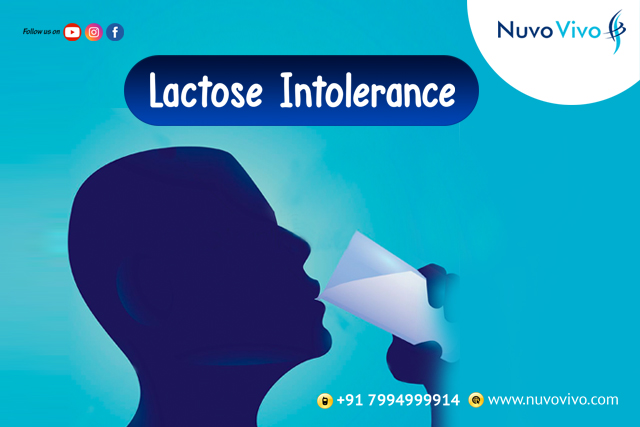We keep hearing a lot about lactose & gluten intolerance, these days! Is that really a thing!?
Well, Lactose and Gluten intolerance actually exists! However, most of what you hear as lactose or gluten intolerance is something else, which is misconstrued and blamed on dairy (lactose) & wheat products (gluten). Gluten intolerance is a topic for another day; let’s address lactose intolerance for now
Lactose is a kind of sugar (carb) that is seen in milk & milk products. Lactose is metabolised by an enzyme called lactase, which is made in the small intestine. When the lactase enzyme is deficient, lactose is not digested or absorbed in the small intestine, instead moves into the large intestine. The bacteria in the large intestine interact with this lactose sugar there by causing bloating, diarrhea, nausea, abdominal cramps, gas formation, etc. This is lactose intolerance!
Almost all of us are born with the ability to secrete enough lactase enzyme. However, as we all grow up, and move to other types food than the breast milk, the ability of the small intestine to produce lactase reduces gradually. Most of us can still drink milk and would have enough lactase to digest it. However, for some people, the lactase levels fall much lower thereby causing lactose intolerance. This happens with aging and is known as Primary Lactose Intolerance. This condition is not common among South Asians, rather, is mostly seen in African, Arab, Jewish, Greek, and Italian descendants
Secondary lactose intolerance happens when the body loses its ability to produce lactase because of illness, surgery, etc. This could happen because of IBS (Irritable bowel syndrome), Inflammatory diseases ( Ulcerative Colitis, Crohn’s etc), Celiac disease (Gluten intolerance), etc.
Very rarely, it could be congenital lactose intolerance, and happens at the infancy itself and is mostly hereditary or due to premature birth.
IBS or other gastrointestinal issues are often confused as lactose intolerance. If there is blood in the stool, then it is a strong indicator that it is NOT lactose intolerance and needs immediate medical attention
People who are lactose intolerant stand at a risk of reduced calcium absorption, thereby causing osteoporosis, brittle bones etc. A Calcium+Vit D3 supplementation is highly recommended for such people. If you are lactose intolerant, the best way is to avoid dairy products. However, there are lactase enzyme supplements that can be taken to cover up for the deficiency of the lactase enzyme.

